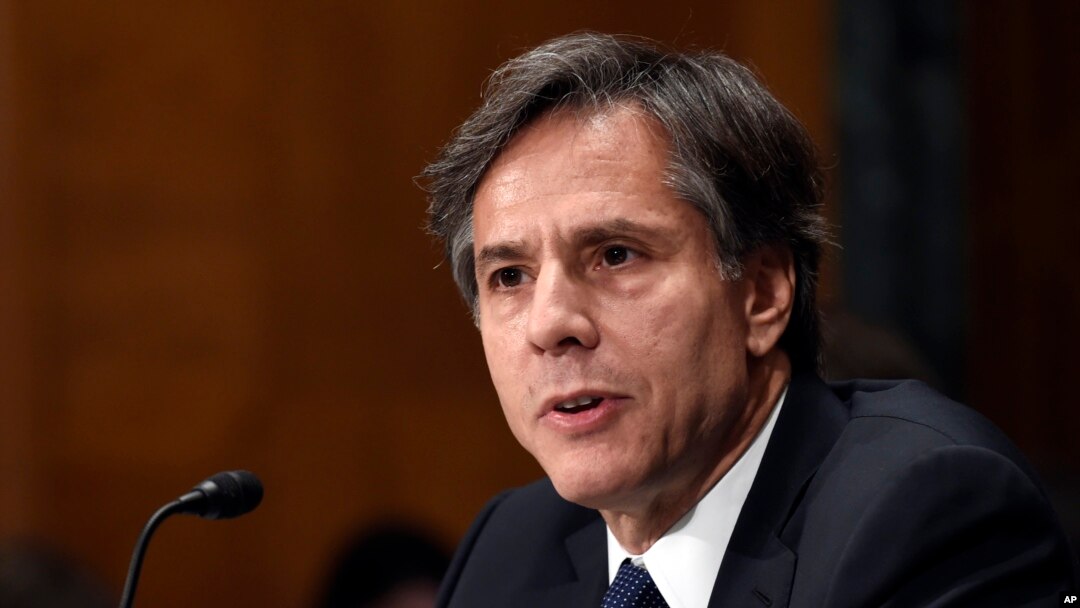Myanmar says it will work to protect members of the country's Rohingya Muslim minority that are risking their lives to flee poverty and persecution in the country.
According to a presidential spokesman, President Thein Sein said the government is committed to verifying the nationality of those in need of aid, as well as protecting and assisting Myanmar citizens. He added that authorities will provide assistance and arrange repatriation to other people found in Myanmar.
The announcement follows a meeting Thursday between the president and U.S. Deputy Secretary of State Antony Blinken in the capital, Nyapyitaw. The senior U.S. diplomat had called on Myanmar officials to "improve conditions in Rakhine state so that people don't feel that their only choice is to put their lives at risk by leaving and taking to sea."
Meanwhile Thursday, officials from the country's foreign ministry met with their counterparts from Malaysia and Indonesia to discuss the crisis, ahead of a broader regional summit set to be held next week.
Abandoned at sea
About 3,000 refugees and migrants, mostly Rohingya from Myanmar and Bangladesh, have been rescued or swam ashore in Southeast Asian countries over the past 10 days after being abandoned at sea by human traffickers. Thousands more are thought to be adrift, with dwindling supplies.
After initially refusing to help the so-called boat people, Indonesia and Malaysia on Wednesday agreed to provide humanitarian aid and temporary shelter to the estimated 7,000 stranded migrants, provided they are resettled within one year with the assistance of the international community.
Watch: Rohingya Migrant Boat Accepted in Indonesian Waters
Your browser doesn’t support HTML5
Rohingya Migrant Boat Accepted in Indonesian Waters
Malaysia Prime Minister Najib Razak on Friday also ordered the Royal Malaysian Navy and Maritime Enforcement Agency to "conduct search and rescue efforts for Rohingya boats," according to a Facebook post, which stressed "We have to prevent the loss of life."
Malaysian Foreign Minister Anifah Aman and Indonesian Foreign Minister Retno Marsudi will discuss the meeting Thursday with Myanmar officials in Myanmar's capital, Naypyidaw. A broader regional summit is set to be held next Friday.
The U.S. State Department welcomed the governments' decision to "uphold their responsibilities under international law," according to spokeswoman Marie Harf. She also said Washington will help the U.N. set up protection centers and consider requests to resettle some of the refugees.
"The U.S. stands ready to help the countries of the region bear the burden and save lives today. We have a common obligation to answer the call of these migrants who have risked their lives at sea," Harf said Wednesday at a regular briefing in Washington.
Thailand takes action
The migrant crisis intensified earlier this month when Thailand disrupted longstanding human trafficking networks that targeted Rohingya. The people smugglers fled, leaving thousands of boat people adrift at sea.
The governments of Malaysia, Indonesia and Thailand were strongly criticized for initially pushing back the boats of refugees. The governments were fearful their shores would be flooded with impoverished migrants if the boat people were allowed to disembark.
Myanmar also has received international criticism for its role in the crisis. The predominantly Buddhist country denies citizenship and many other basic human rights to the mainly Muslim Rohingya group.
The stateless group's fate has worsened since an outbreak of religious violence in 2013, which left over 200 Rohingya dead. Since then, tens of thousands of Rohingya have been forced to live in filthy, overcrowded, prison-like camps in western Rakhine state.
Myanmar, also known as Burma, refrains from even referring to members of the group as Rohingya. Instead, it insists on calling them "Bengalis," and views them as illegal immigrants from neighboring Bangladesh.
The U.N. has repeatedly called for Myanmar to provide full citizenship and other rights to the Rohingya. Its statement on Tuesday called for efforts to be redoubled to "address 'push factors' and the root causes of refugee and migrant flows, including discrimination, deprivation, persecution and violations of human rights."


